Detroit route cuts and lay-offs still to go into effect
By Diane Bukowski
February 22, 2012
DETROIT – Two days before public hearings on drastic cuts to Detroit bus routes and jobs, Mayor Dave Bing announced the city’s acquisition of 46 new buses, funded with federal dollars given to Detroit. He also introduced a new D-DOT CEO, Ronald Freeland, of the private start-up company Envisurage, Inc.
During the press conference, held at the newly re-opened Shoemaker Terminal on Detroit’s east side, Bing admitted that he supports Gov. Rick Snyder’s plan for a Southeast Michigan Regional Transit System (SMRTS) which would include Detroit.
“I have bought into Gov. Snyder’s plan, which would include the counties of Wayne, Oakland, Washtenaw and Macomb,” Bing said. “But we have to fix the problems we have in D-DOT first, so D-DOT can be folded into the new system. We are still looking at a reduction in routes, and lay-offs are still part of our fiscal stabilization plan.”
Hearings on route reductions and the lay-offs of 78 D-DOT drivers and mechanics are set for Friday, Feb. 24. (Click on http://voiceofdetroit.net/2012/02/16/drastic-detroit-bus-cuts-finally-acknowledged-hearings-feb-24/ for hearing schedule and other issues.)
Bing said only 15 of the buses will be on the road by the end of this month, with the remainder expected to be in service by May. He said that the delay is due to “training” drivers to operate the new buses, which have GRS tracking systems and other devices. Buses marked “Training” and “Shoemaker Terminal” could be seen cruising around the site.
NEW D-DOT CEO PART OF ANTI-WORKER ENVISURAGE CO.
According to his bio, Freeland had been Vice-President and Mid-Atlantic District Director at T.Y. Lin International, a private global, multi-disciplinary engineering services firm since Aug. 2010. T.Y. Lin International has offices in Rochester, N.Y., where Envisurage CEO Mark Aesch spent the last seven years as CEO of the Rochester Genesee Regional Transit Authority.
Freeland’s bio also says that he has “more than twenty-five years of experience in the transportation industry in the Mid-Atlantic region of the U.S., including projects involving railroads, motor carriers, automakers, and highway authorities He served as the Executive Secretary of the Maryland Transportation Authority (MdTA) since February 6, 2007.”
Freeland said he would be working as part of the Envisurage team. Mark Aesch is CEO of that company. VOD asked Freeland about the Envisurage work order published in VOD’s first article on the cuts (click on http://voiceofdetroit.net/2012/02/09/bing-to-slash-bus-routes-d-dot-jobs-feb-24-contractor-gets-big/), It denigrated D-DOT workers essentially as lazy and inefficient and said significant staff and route reductions would have to be made.
“I don’t think any responsible management team looks to get rid of workers,” Freeland responded. “But we need to look at what kind of transportation is needed in a smaller Detroit, and how many employees would be needed. Some might have to be laid off.”
He said he plans to meet with Henry Gaffney, President of Amalgamated Transit Union Div. 26, who represents D-DOT drivers, in the next two weeks. He has made no arrangements to meet with Leamon Wilson, President of AFSCME Local 312, representing bus mechanics.
DETROIT SPENT AT LEAST $13.8 MILLION FROM FEDS ON BUSES
Bing said the city purchased the new buses from Gillig. Gillig is a California-based company now owned by the multi-billion dollar investment fund Henry Crown & Co. of Chicago, whose chief competitors include the likes of the infamous Carlyle Group. Before his death, Henry Crown was reputed to have ties with the Chicago mob.
Gillig buses cost at least $300,000 each for normal diesel-powered buses, according to an article on the Ann Arbor Transit Authority’s Gillig buses. That means that the city of Detroit used federal funding of approximately $13.8 million for buses, and additional federal funds to upgrade D-DOT terminals and facilities, all of which will likely become part of a new regional transit system.
But that is not the worst of this scenario.
DEMS SPONSOR ANTI-DETROIT REGIONAL TRANSIT BILLS
A set of six bills pending in the State Senate and House, sponsored by a bi-partisan crew, would create a regional authority with a ten-member governing board that includes only one representative appointed by the Mayor of the City of Detroit, despite the fact that D-DOT is the largest system in the region, with 48 bus routes that serve 138 square miles in Detroit and an estimated 140,000 people each day.
Sponsors include Senators Tom Casperson (R-UP), Bert Johnson (D-Detroit, Highland Park), Michael Kowall (R-Oakland County), and Rebekah Warren (D-Washtenaw County).
State Reps sponsoring a virtually identical House bill include a shocking number of Democrats. They are Vickie Barnett (D-Farmington Hills), Tim Bledsoe (D-Grosse Pointe),
Charles Brunner (D-Bay County), Phil Cavanaugh (D-Redford, Livonia, Dearborn Hts.), Bob Constan (D-Dearborn Heights), Brandon Dillon (D-Grand Rapids), Fred Durhal (D-Detroit), Andrew Kandrevas (D-Downriver Wayne County), Marilyn Lane (D-Macomb County, part), Ellen Lipton (D-Huntington Woods), Lesia Liss (D-Warren, Centerline), Matt Lori (R-Constantine), Rick Olson (R-Saline), David Rutledge (D-Ypsilanti), Wayne Schmidt (R-Traverse City), Dian Slavens (D-Canton), Thomas Stallworth (D-Detroit), Jon Switalski (D-Warren), and Jim Townsend (D-Royal Oak).
The SMRTA would be funded in part by an increase in motor vehicle registration fees, tax levies, bond purchases and other arrangements approved by the board, which will disproportionately affect the poorest residents of Michigan.
Snyder earlier touted this plan after SMART (the Suburban Mobility Authority for Regional Transportation) ran into problems related to its non-compliance with federal requirements guaranteeing the rights of workers whose systems receive U.S. funds. After its unions complained, SMART laid off workers and cut routes.
The groups Transportation Riders United (TRU) and MOSES are also pushing the bills. TRU was set to go to Lansing in their support Feb. 23, a day before hearings on the bus cuts.
The legislation includes Senate Bills 909 through 912, and House Bills 5309-5311. (Click on Regional Transit Authority 2012-SIB-0909[1])
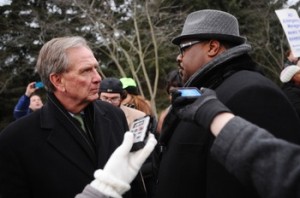
Gov. Snyder's chief of staff Dennis Muchmore and Rev. Chas. Williams II at PA4 protest outside Snyder's home Jan. 16, 2012
“We need quality transportation, and this bus rapid transit is that opportunity,” the Rev. Charles Williams II of Historic King Solomon Baptist Church, president of Metropolitan Organizing Strategy Enabling Strength (MOSES), told the Detroit Free Press Feb. 2.
Johnson, Rev. Williams, and others among the bills sponsors have campaigned vociferously against Public Act 4, the emergency manager act which currently threatens the city of Detroit. But they have said nothing about the threats these regional transit bills pose to Detroit’s citizens and workers.
Sec. 5 of Senate Bill 909 says:
“(1) An authority shall be directed and governed by a board consisting of all of the following:
- (a) One governor’s representative appointed by the governor.
- (b) Two individuals appointed by the county executive of a county within the public transit region that has a population of not less than 1,200,000 and not more than 1,500,000.
- (c) Two individuals appointed by the county executive of a county within the public transit region that has a population of not less than 800,000 and not more than 850,000.
- (d) Two individuals appointed by the chair of the board of county commissioners of a county within the public transit regionthat has a population of not less than 330,000 and not more than 380,000.
- (e) Two individuals appointed by the county executive of a county within the public transit region that has a population of not less than 1,800,000 and not more than 2,000,000. One of the 2 individuals appointed under this subdivision shall be a resident of a city within the public transit region with a population of at least 600,000.
- (f) One individual appointed by the mayor of a city within the public transit region with a population of at least 600,000.”
This means that the Detroit representative will be vastly outnumbered on the board, even when certain matters require a super-majority (4/5) vote. Those matters include placing on the state ballot the levy of a special tax assessment and its amount, and approval of a motor vehicle registration fee hike and its amount.
The only three matters requiring a unanimous vote are construction of a rail passenger service, “a determination to acquire an existing public transit authority or agency,” and having state voters decide if the regional authority would assume responsibility for the acquired agency’s debt, “swap losses” (on debt interest), pensions, health care or other existing post-employment benefits.
No mention is made in the bills of dealing with unions representing transit workers in Southeast Michigan.
The bill specifies that its provisions supercede those of local governments. One glaring problem is the fact that the City of Detroit charter requires a vote of the city’s people before any assets of D-DOT are sold or transferred. That requirement, which also applies to the Detroit Water & Sewerage Department, was already ignored by Mayor Bing and the City Council last year when they sold off the Oakland-Macomb County Interceptor without a popular vote.
Only a simple majority of the board is required to approve contracts (which are not subject to set-asides for minority vendors unless required by federal law), rates, routes, and bond purchases (not backed by the authority; payment of bond principal and interest would come from individual agencies’ revenues, e.g. those of D-DOT.)
Both the Senate and House Bills were referred to committee Jan. 26, 2012. Given the make-up of the sponsors and support from Snyder and Bing, they are virtually assured of passage.

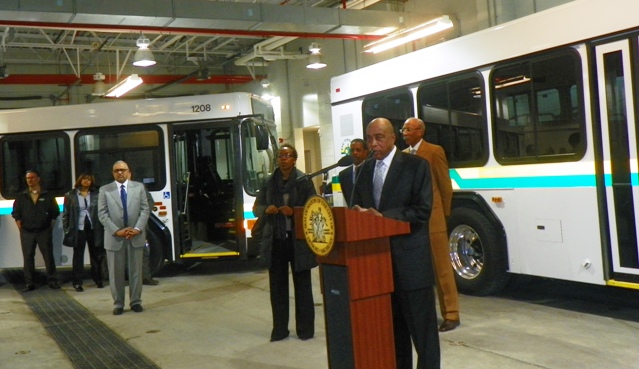
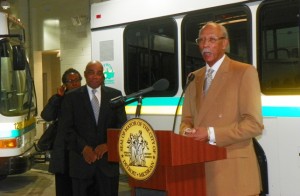
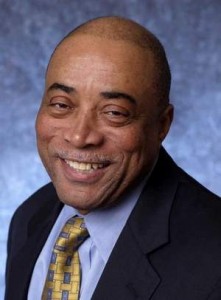
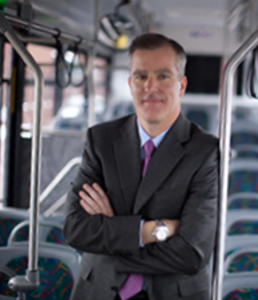
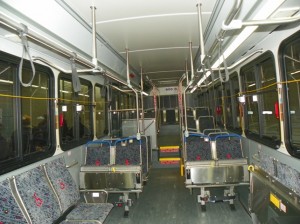
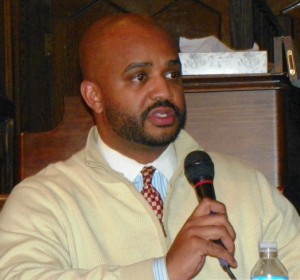

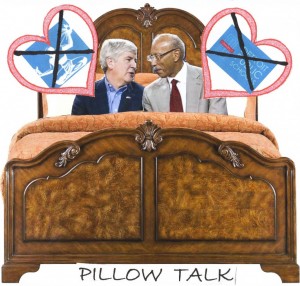






good day everyone im looking for matt handers is he still posting here
alfred beilin
How many millions of dollars and years of committee studies, task forces, presentations and promises will it take to learn our lesson? SMART isn’t smart. And if you thought that SMART was unresponsive, expensive and steeped in politics, wait until you see a Regional Transit Authority. A better solution is to allow entrepreneurs to offer unrestricted transportation services (shuttle, van, taxi, jitney). Social media will very quickly spread the word about who is good and who is not. Low income & seniors can be given vouchers or a BRIDGE type of card. It’s worked elsewhere and well worth a two year test. Put the brakes on a Regional Transit Authority before entwining three or four counties with their layers of politicians into an even bigger SMART type of mess. Tell Lansing and local government to unshackle the free market; you’ll be surprised at how quickly two good things happen: much better service for customers and much lower cost for taxpayers!